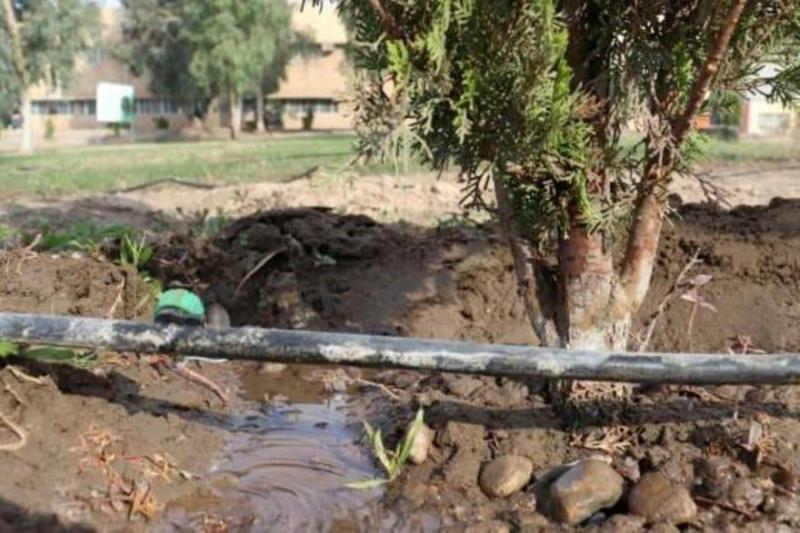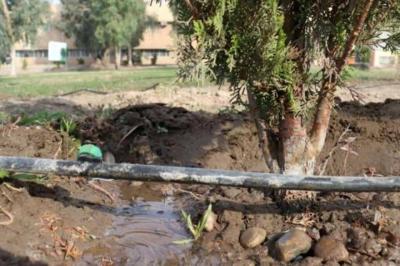On Thursday, a tree planting campaign aimed at combating desertification was launched in Mosul, a city in northern Iraq that was devastated by war after being a stronghold of the Islamic State. A total of approximately 5,000 trees will be planted over the next two months in Mosul and its surrounding areas, funded by the Crisis Center with support from the French Foreign Ministry. The campaign began at the Northern Technical University, where volunteers and students, both men and women, equipped with shovels, dug scattered sites to plant slender trees near irrigation pipes to ensure their survival.
Abd al-Aziz al-Salih, communications and media officer at the "Eye of Mosul" organization implementing the project, stated, "The types of trees we will be planting are lemon cedar, lemon, king's whiskers, acacia, sabbac, and pine." He added, "The goal is to eradicate the existing desertification in the city of Mosul. There are not many green spaces in the area, especially after the war; these green spaces have diminished and disappeared."
Desertification is caused by climatic and human factors. Iraq is the fifth most affected country in the world by climate change, increasingly suffering from severe drought and reduced rainfall. Al-Salih mentioned, "In recent years, there has been little rainfall and groundwater, which is drying up as temperatures continue to rise."
The "Eye of Mosul" group was initially created to highlight the violations of the Islamic State, which was expelled from Mosul in 2017 following an assault by Iraqi forces supported by an international coalition. Beekeeper Aisan Samir (23 years old), participating in the tree planting, said, "Mosul was devastated; restoring these green spaces brings hope and life back to it." He added, "With increased green spaces, the residents of Mosul will be able to relax in the parks."
The World Bank warned on Wednesday that a one-degree Celsius rise in temperature and a 10% decrease in rainfall in Iraq will lead to a 20% decrease in available freshwater by 2050, adding that one-third of irrigated agricultural land will then be deprived of water.




